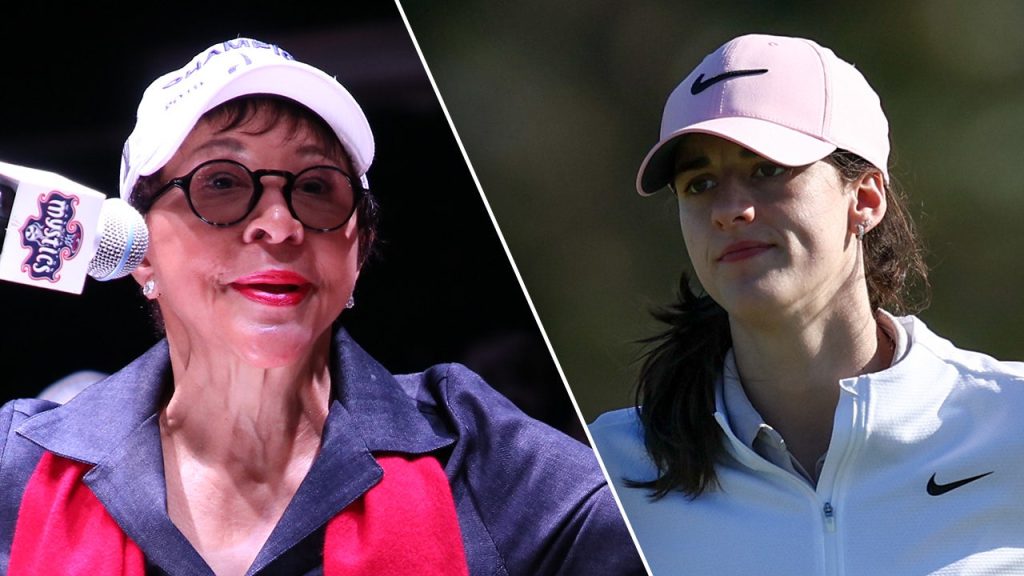Sheila Johnson, owner of the Washington Mystics, expressed her discontent with Time magazine’s decision to name Caitlin Clark the “Athlete of the Year,” arguing that the accolade should have been bestowed upon the entire WNBA. Johnson contended that singling out one player fosters resentment and fuels accusations of racism within the league. She went further, suggesting that the media’s focus on Clark, and the subsequent “Caitlin Clark effect,” is rooted in racial bias, lamenting that numerous equally talented players of color have not received comparable recognition. This perceived disparity extended to Clark’s lucrative Nike endorsement deal, which Johnson cited as a source of discontent among other WNBA players who feel overlooked. While acknowledging the league’s recent surge in popularity, Johnson attributed it to the collective impact of the 2024 rookie class, including players like Angel Reese, rather than solely to Clark’s influence. Despite benefiting from Clark’s drawing power for record-breaking ticket sales at a Mystics game, Johnson publicly criticized the disproportionate attention Clark receives.
Johnson’s criticism of Time magazine’s choice reflects a broader debate surrounding race and recognition in the WNBA. She believes that focusing on a single white player overshadows the contributions of the predominantly Black league, thereby perpetuating historical inequities in media representation. This sentiment resonates with the concerns of other prominent voices in sports and media who have questioned the role of race in Clark’s rapid rise to stardom. While acknowledging the exceptional talent of Clark, these critics argue that her whiteness contributes to her marketability and appeal in a league where Black athletes have historically been underrepresented and undervalued.
Johnson’s argument centers on the idea that rewarding individual achievement, while potentially meritorious, can inadvertently exacerbate existing tensions surrounding race and equity. She posits that celebrating the WNBA as a whole would have been a more inclusive and appropriate gesture, recognizing the collective efforts of all the players, regardless of race. Furthermore, by attributing the WNBA’s increased visibility to the entire rookie class, Johnson aims to distribute the credit more broadly and diminish the perception that Clark alone is responsible for the league’s success. This perspective highlights the tension between recognizing individual excellence and promoting a more equitable distribution of recognition and opportunity.
The financial implications of Clark’s endorsement deal further complicate the issue. Johnson’s observation that other players are questioning their own endorsement opportunities in light of Clark’s lucrative Nike contract underscores the economic disparities within the league. This suggests that the focus on Clark may be diverting potential sponsorships and endorsements away from other deserving players, potentially widening the gap between the highest-paid athletes and the rest of the league. The issue of fairness and equitable compensation within the WNBA is thus intertwined with the conversation surrounding race and representation.
Johnson’s comments, while controversial, expose a complex interplay of factors contributing to the discussion surrounding Clark’s prominence. The unprecedented attention Clark garnered undoubtedly boosted the WNBA’s visibility and drew new fans to the league. The Mystics, under Johnson’s ownership, directly benefited from this increased interest, achieving record-breaking attendance at a game featuring Clark. However, Johnson’s criticism highlights a deeper concern that individual accolades, particularly when bestowed upon a white player in a predominantly Black league, can be perceived as reinforcing existing racial biases and obscuring the contributions of other deserving athletes. The question becomes how to celebrate individual achievement without inadvertently perpetuating systemic inequalities.
The debate surrounding Caitlin Clark’s prominence in the WNBA extends beyond Sheila Johnson’s critique. Several other figures in sports and media have also weighed in on the issue, often invoking the concepts of race, privilege, and representation. A’ja Wilson, WNBA MVP, alluded to the significance of Clark’s whiteness in her popularity, while media personalities like Sunny Hostin and Jemele Hill have suggested that her race and sexuality contribute to her appeal in a league where most players are Black and many identify as LGBTQ+. Even Skip Bayless, a frequent critic of Clark, admitted to downplaying her talent out of a concern for exacerbating racial divisions. These varied perspectives underscore the sensitive and complex nature of the conversation surrounding race and representation in sports. The discussion highlights the ongoing challenge of balancing the recognition of individual talent with the pursuit of greater equity and inclusion.

